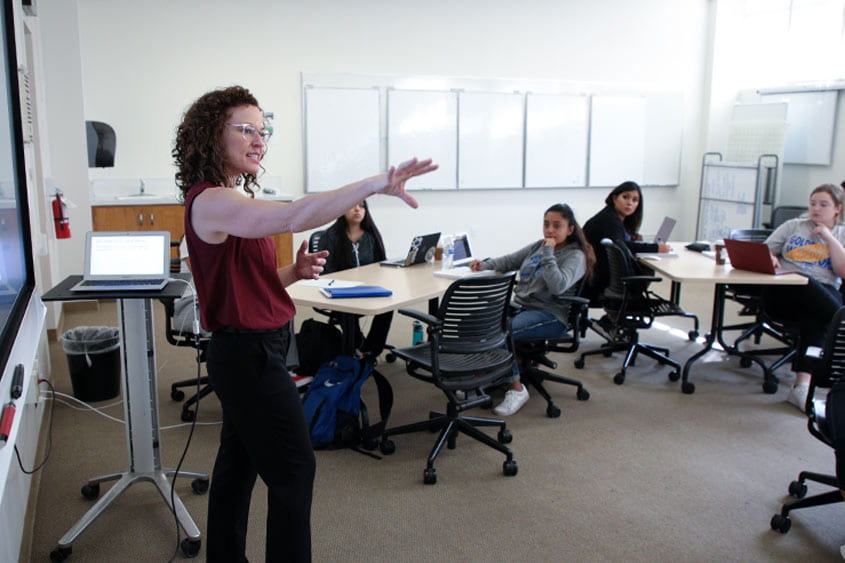
How can pursuing an education help you find your voice — and how can you use your voice to transform others?
San José State’s Connie L. Lurie College of Education is subverting the hierarchies embedded in higher education, primarily “systemic racism that has historically prevented full inclusion and equity for our BIPOC (Black, Indigenous, People of Color) students, staff, and faculty,” one initiative at a time. Starting in 2018, Dean Heather Lattimer invited students, staff and faculty to participate in a year-long strategic planning process to brainstorm innovative ways to disrupt education. How could each department, from Teacher Education to Communicative Disorders and Sciences, create an environment that promoted inclusivity, diversity and anti-racist thought?
The first step? Listening. Listening to our teachers, undergraduates, graduate students and staff as well as educators working in the field, researchers and policymakers. Listening to lecturers like Marcella McCollum, ’05 MA Speech Pathology, ’22 EdD, who not only volunteered to serve on the strategic planning committee but also proposed a minor in Transformative Leadership in partnership with Rebeca Burciaga, professor of educational leadership and Chicana and Chicano Studies.
“We need to think about changing paradigms,” says McCollum. “We cannot just offer a class or textbook that tells you how to overcome the challenges that exist in our current educational systems as they are designed. We want students to question why things are the way they are. We want them to have the tools, so they can push back when something looks unjust.”
Throughout the year-long process, the strategic planning committee interviewed students, gathered research and collaborated to update the college mission. The committee created an identity statement and formed four strategic pillars — community engagement, cultural sustainability, holistic approaches and interdisciplinary collaboration — which unites the college’s work across departments. Faculty, staff and students were then invited to submit grant proposals for endeavors that aligned with those pillars.
Luz Nicacio, ’21 Child and Adolescent Development, provided key insight as the only undergraduate on the committee who helped review grant proposals, provide feedback to those submitting ideas and select those that would be awarded funding.
“I saw how influential my voice was in deciding the college’s direction,” she says. “Being on the committee showed me that my college values the opinions of its students and does care about us.”
Read the full story from Julia Halprin Jackson on the SJSU Transform website.